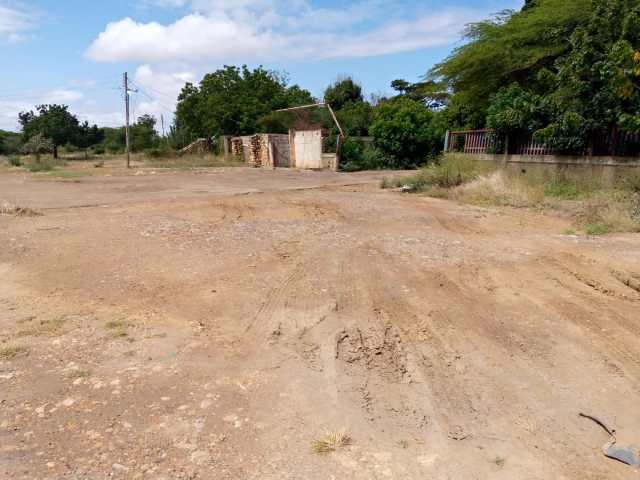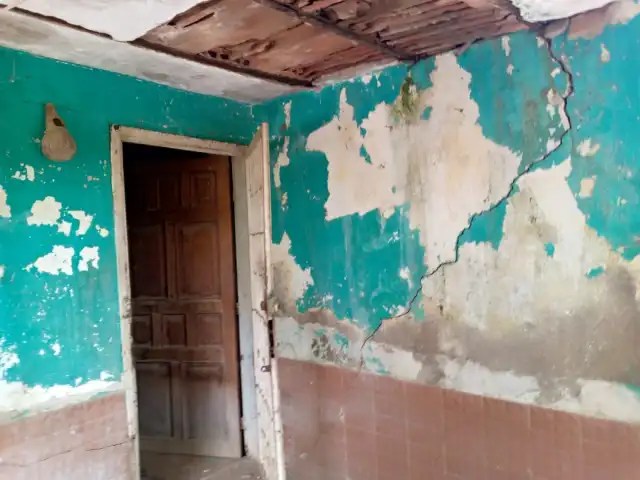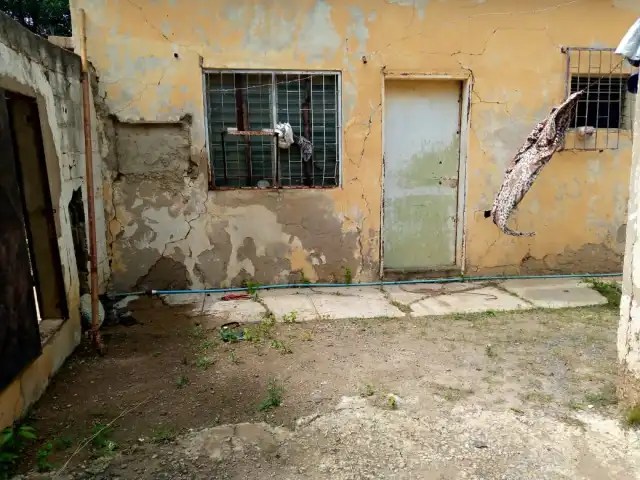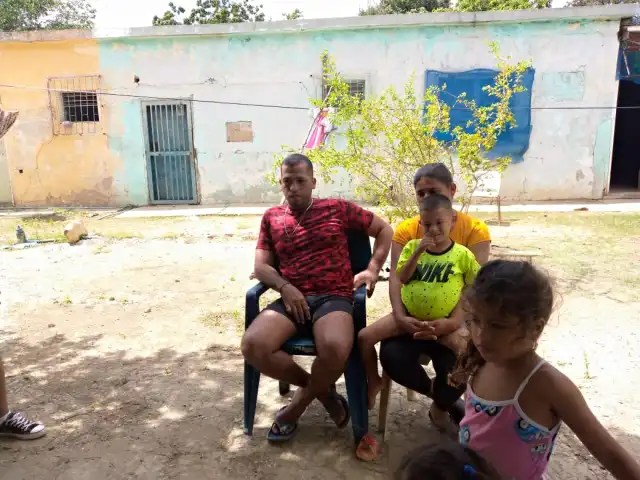
The Los Olivos sector of the Colina Municipality in Falcón State, in western Venezuela, has not advanced nor has it come out of misery after two decades of promises that Chavismo has left in the air.
Correspondent lapatilla.com
This populous community, located between Coro, the capital of Falcón, and “La Vela de Coro” township, both cities recognized as Cultural Heritage by Unesco, has not had any luck faced with the misfortune that means living under the indifferent gaze of those who (mis)govern, thus the inhabitants of the sector have activated themselves so as not to die of waning.
Los Olivos was one of the places most affected by the overflow of the Coro River, which occurred in October 2022. The families lost everything… They barely kept the clothes they were wearing when the tragedy happened.
Many were rescued by Civil Protection officials, who managed to get them out of their homes where the water swept away everything in its path and reached almost two meters high in some homes.
This town has grown around the Coro River, with houses selfbuilt by the inhabitants themselves. Many can even see and hear the tributary river from the patio of their homes.
Ephemeral Aid

Once the river invaded the houses, many rescue officials, two mayors and even the Chavista Governor Víctor Clark came along with his entire cabinet. Those affected were received in a house in the same sector that a neighbor enabled to help those affected, while the regional government provided them with food, water and mattresses so that they could stay in the place.
They stayed in this place for almost three weeks, but they were informed that they had to return to their homes and they did. “We arrived at the little house, where the water already had already drained out, but was still full of mud, we had nothing left. We couldn’t even save the mattresses. We started cleaning to see how we could recover the spaces and prevent the children from getting sick. They didn’t even let us bring the mattresses we were using at the shelter: they gave us an individual mattress, because I told them that the children had nowhere to sleep,” recalls a moved Euclides Barrientos, father of three children, including one with a special condition.
This family of five members has been living in the care home for nine years; A few years ago they were awarded a house in the same neighborhood, but it was not completed. “We are seeing how we can get our hands on our house and be able to move to a better place. This house was already in very bad condition and the river finished damaging it: the floor was raised and the walls are cracked. We live in danger, but we have nowhere to hold onto.
He recalled that while they were in the shelter, they promised to provide them with belongings, at least the most essential after the river took everything, but these were false promises. “There are people here who only kept what they were wearing on and that is how they live, because the aid never arrived,” Barrientos lamented.
An Olive Tree That Is Dying Out

José Maya has been a resident of the community, almost since its foundation. He happily recalls that the sector is called “Los Olivos” (The Olive trees, olive groove), due to the number of these plants that grew in the area and that gave the place its natural beauty, but with the arrival of the people, little by little they diminished. No one knows the history of the place like Maya, that knowledge even took him to become part of the “communal council” (Consejo Communal) where he worked for many years, but due to divisionism, he decided to retire.
“I have seen several mayors go by, and they only come when the elections are approaching. We ourselves are the ones who have to seek solutions from our people. Here we had an electric pole that killed a goat, and also almost killed a herder and a schoolboy. Fortunately, the community put up branches to prevent that from happening, but they only fixed it a year later and thanks to many visits to the mayor’s office,” he recalled.
On the day of the flooding by the Coro River, the water in his house reached almost two meters in height, which could have been avoided. He tells Maya that there was a manhole that had been collapsed for years, and although he had already made the report to “Hidrofalcón” (The government run water utility company), it was never repaired.
“They were able to pump out the water and they repaired the pipeline, because the day the governor came, I waited for him and approached him, explaining the situation we had had for years, and it was then that he ordered the repair of the pipeline.”
He also recalls that they promised to fill up (the terrain) in front of the houses to prevent possible flooding, in case the natural disaster occurs again, but they did not comply either.
Pure “blablabla”

Almost five months after the overflow of the Coro River that affected the entire town and its adjacencies all promises were forgotten: they did not deliver the aid they promised and they did not repair the damage that occurred in the sector with the flood.
Los Olivos is still in the dark, without public lighting, with wooden posts that are about to collapse. The surroundings of the river are “adorned” with rubbish and bush. There are also problems with sewage.
There is no signaling, despite the fact that the sector is divided by a “variant” (alternate highway) that connects Coro with La Vela and the central region of the country. For many years they have asked for walkways, especially so that children who go to school every day can cross the important road safely.
At least 475 families were affected by the floods in Falcón, due to the heavy rains that occurred in October 2022, but Los Olivos was one of the sectors most affected by the tragedy, and also one of the most forgotten by Chavismo.

